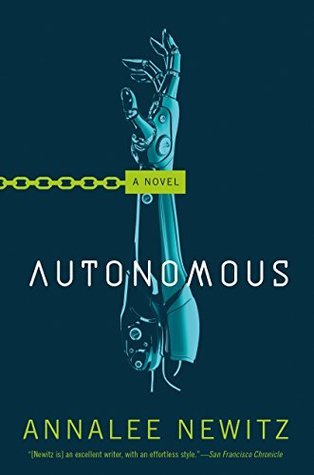#jack saulter
Text
thinking about being jann’s wag (wife and girlfriends of sportmen or women)

summary: what its like being at jann’s races
content: fluff and wholesomeness

“and also spotted here with us today with the nissan crew is jann mardenborough’s partner smiling bright at the chances he has today”
the loudspeakers of the track booming with the commentator’s light voice. suddenly your face is plastered all over the big screens with your name across it. you flash your proudest smile, looking up at the screens as you hear the whole audience cheer.
they could be cheering for anything else but you’re here to cheer for your handsome boy. the broadcasting cameras are now tracking him down, as shown on the big screens. he’s standing beside his car, his face tilted upwards obviously watching the screens that were showing you. he’s grinning realising that he’d been caught snooping. the racing suit hugging his body perfectly showcasing his broad shoulders. and his slutty waist. he shakes his head still smiling before returning to the paddock with his helmet in his hand
its not the first time you’d follow him to his races, you’d insisted on going just to enjoy how hot he looks on the tracks in real life. not that you hadn’t seen him on the tv but they dont really focus on jann all the time. here, you get praises from the crews all the time because of his talent and skills. everytime he would advance they’d be searching your face for a reaction and you couldn’t be prouder. and he knows it too, it’s become his motivation on the track, he’s focused to do his best and to make you proud
best part of being at his races ? you would get to see him coming towards you in all his glory, face shiny with a thin layer of sweat. just like right now. you greet him into the paddock with a hand on his chest, his arm wrapped around you. he leans down for a kiss which you return passionately
“i saw you on the screens” he tells you
“yeah ? well i saw you passing capa, you looked hot”
“you couldnt even see me in the car”
“exactly” at which he throws his head back chuckling
though he has other things to settle before going home after finishing the race (winning), he’d ask jack to go see you first just to be peppered with kisses all over his face. after couple of times, jack already knows he’d want to go see you first and he’d just be happy for the both of you.
puppy love, he thinks.
#jann mardenborough gran turismo#jann mardenborough x fem!reader#jann mardenborough#subby jann mardenborough#jann mardenborough fluff#jann mardenborough fanfic#jann mardenborough imagine#jann mardenborough wholesome fic#jann mardenborough fic#jann mardenborough wholesome#jack saulter#gran turismo smut#gran turismo fluff#jann mardenborough smut#jann mardenborough cute#jann mardenborough oneshot#jann mardenborough blurbs#gran turismo wholesome#gran turismo(2019)#archie madekwe fluff#archie madekwe wholesome#archie madekwe cute#archie madekwe x fem!reader#archie madekwe fanfic#archie madekwe fic#archie madekwe smut#archie madekwe#archie madekwe imagine#archie madekwe blurbs#jann mardenborough x reader
86 notes
·
View notes
Link

Certain Love Island contestants have gone on to become extremely popular on social media over the years, accumulating millions of followers on Instagram in very short periods of time. The Love Island franchise was rebooted in 2015 in the UK. Six seasons later, it is one of the most successful dating competition series in the world, launching several international editions around the world. The American edition, Love Island USA, became more popular than ever on season 2, which was filmed in Las Vegas and aired in 2020. Alas, it is obvious that certain islanders have gone on to become way more popular than others.
When it comes to Love Island, the placement of a contestant on the show has little to do with the number of followers that they get after the show ends. Instead, the fans usually fall in love with an islander's looks, charisma, and sense of humor. Alas, those qualities unfortunately do not guarantee that a person can find love inside the Love Island villa. But thankfully these people gain a legion of fans after the show and do go on to find love and success outside of the show. On Instagram, it is clear which islanders are more popular with the fandom.
Related: Cardi B Shares Video By Love Island's Justine & Big Brother's Bayleigh
After competing on Love Island USA, certain contestants gained a lot of followers on Instagram. The most-followed American islander from the show is Kaitlynn Anderson with 1 million followers on the social network. Rounding out the Top 5 ranking are Caro Viehweg (477,000), Cely Vazquez (428,000), Johnny Middlebrooks (407,000), and Justine Ndiba (405,000). The Top 10 goes on to include Kyra Green (361,000), Mackenzie Dipman (320,000), Aissata Diallo (309,000), Caleb Corprew (286,000), and Kierstan Saulter (232,000). Islanders that could enter the Top 10 in the near future are Elizabeth Weber (220,000), Connor Trott (213,000), Moira Tumas (204,000), Calvin Cobb (200,000), and Laurel Goldman (161,000).
All things considered, the most popular Love Island contestants on Instagram all come from the original British series. Leading the pack is Molly-Mae Hague, who has 5.2 million followers. The Top 5 then features Dani Dyer (3.4 million), Tommy Fury (3.2 million), Maura Higgins (3.1 million), and Amber Gill (2.6 million). Rounding out the Top 10 are Olivia Bowen (2.5 million), Kem Cetinay (2.3 million), Chris Hughes (2.1 million), Jack Fincham (2 million), and Ovie Soko (1.9 million). Currently, Olivia Attwood is right behind Ovie, as she also has 1.9 million followers. Other popular islanders include Paige Turley (1.8 million), Siannise Fudge (1.8 million), Megan Barton Hanson (1.7 million), and Wes Nelson (1.6 million).
There's no denying that certain Love Island stars have become global superstars with legions of adoring fans. These islanders are now legitimate social media influencers with massive careers, and it all started on the show.
More: Love Island USA: Caleb Hosts Chaotic Q&A, Gets Even More Death Threats
Love Island: Most Followed Islanders Ever On Instagram from https://ift.tt/3seiUF2
0 notes
Photo

AUTONOMOUS BY ANNALEE NEWITZ
BY: NIALL HARRISON ISSUE: 11 DECEMBER 2017
1.
Medicine, medical research, and healthcare systems have always felt to me a little under-explored by SF. Every so often there's a small-press anthology, or some think tank-y futurism—such as this year's Writing the Future competition, organised by Kaleidoscope Health & Care—and on screen no starship is complete without its sickbay and doctor. But when it comes to more substantial SF, and in particular novels, the pickings seem slim. The two recent-ish examples that come to mind are Project Itoh's Harmony (2008, trans. Alexander O. Smith 2010), and Juli Zeh's The Method (2009, trans. Sally-Ann Spencer 2012): both are classically dystopian narratives that dramatise the totalitarian potential of excessive care. Beyond that, you have to look for more generally biotech-oriented stories that incorporate elements of healthcare politics, such as Stephanie Saulter's (r)egeneration series (2013-2015), or mainstream-published work that shades into the speculative, such as Jillian Weise's The Colony (2010) or Hanya Yanagihara's The People in the Trees (2013). The gap seems especially glaring when it comes to American genre SF, given the political prominence and immanently-dystopian quality of the American healthcare system, and its knock-on effects for global healthcare: to paraphrase William Gibson, the drugs are here, they're just not evenly distributed.
So Annalee Newitz's first novel, Autonomous, is welcome for building its narrative around the practicalities and morality of access to effective drugs, even if some of its choices are a little more confusing than you might hope. But we'll come to that. Setup first: towards the end of the present century, the global Collapse that looms in most of today's near futures leads to a realignment of the international order, away from nation-states and towards “economic coalitions”—of which the big players seem to be the Free Trade Zone that covers most of North America, the Asian Union, the African Federation, and the Eurozone—that represent near-total capitalist capture of governmental and public services. As a result, patent terms for new medicines have been extended to longer than a normal human lifespan; regulatory oversight of the clinical development process has been weakened nearly out of existence; drugs that enhance health and cognition are common and required for many jobs; and the pay-for-treatment US insurance model appears to have been extended to basically the entire world, leading to cascading generational inequality:
Only people with money could benefit from new medicine. Therefore, only the haves could remain physically healthy, while the have-nots couldn’t keep their minds sharp enough to work the good jobs, and didn’t generally live beyond a hundred. Plus, the cycle was passed down unfairly through families. The people who couldn’t afford patented meds were likely to have sickly, short-lived children who became indentured and never got out. (p. 55)
Enter Jack Chen, patent pirate. From a family of farmers, she moved into synthetic biology research, and then into open medicine activism, first as part of a group known as The Bilious Pills, then later and for decades as a solo artist. In July of 2144, we find her in the middle of the Arctic Ocean, charging up the batteries of her submarine and worrying over news stories about a bad batch of black-market pharma that might be her fault. In an attempt to raise funds to subsidise her “real work” making medically urgent antiviral and gene therapies freely available, Jack reverse-engineered and sold Zacuity, the hot new “productivity pill” made by Zaxy, which was “didn't just boost your concentration [but] made you enjoy work” (p. 14). Now there are stories in her feed about people with obsessive task addiction, starting with a student whose “brain showed a perfect addiction pattern [...] like she'd been addicted to homework for years” (p. 11). Before too long, Jack is on the run, attempting to find a cure for the people she's inadvertently hurt, while being pursued (in alternating chapters) by agents of the International Property Coalition.
Newitz's future, while perhaps not quite matching the likes of Lauren Beukes or Ian McDonald for sentence-level stylistic verve, is rich, varied, and consistently interesting; it's fun to roam from the Arctic to Casablanca to Vegas and on. But every now and then something doesn't quite ring true. The mildest of my eyebrow-raises were down to inconsistencies or ambiguities in terminology. If you tell me a drug is in “beta” (p. 29), I will assume a move-fast-and-break-things culture has replaced more rigorous medical research, unless and until you later start talking about phase 1 clinical trials: those two linguistic paradigms don't fit neatly together. If you refer to “cloned Zacuity” (p. 13), I will assume it is produced by a process in which cloning could plausibly be relevant; so it's probably a biologic, perhaps a cell therapy of some kind; but if you then talk about “isolat[ing] each part of the drug” and “narrow[ing] the questionable parts down to four molecules” (pp. 28-9) I will get thoroughly confused, since not only does that not sound like a cell therapy or biologic, it doesn't even sound like Zacuity is a single drug, but rather a combination of small-molecule treatments.
Above this, however, sit some practical and conceptual concerns. I can accept that the novel's characters believe that subversion of intellectual property law is the most practical solution to their crisis because they are living under total capitalism; but it is odd that nobody even laments the impossibility of a system that would centralise and pool healthcare costs. Socialism seems to have been thoroughly erased in the present, in memory, and in possibility. And I can accept that “Zaxy didn't make data from their clinical trials available”, but the corollary, “so there was no way to find out about possible side effects” (p. 14) seems a little dubious in what is evidently still a networked world easily capable of crowdsourcing that information. Then there's the underlying business model itself. It seems that the have-nots massively outnumber the haves, and while pharmaceutical companies are not perfectly rational economic agents, and have been known to push the limits of appropriate pricing for access to treatment, at a certain point charging x to a market of y patients becomes less profitable than charging a fraction of x to a multiple of y. Everything we learn about the world of Autonomous suggests that Zaxy and its competitors deliberately keep themselves on the wrong side of that equation. It's only Jack and her friends attempting to fill the market hole, and it's not clear why.
Why does such pedantry matter? Perhaps it doesn't. But Zacuity is presented to us as symptomatic of a system, a synecdoche for lost autonomy, the reduction of human lives to biological machinery. It's everything Jack has dedicated her life to fighting against. And for that fight to really matter, the symptom and the system need to feel crushingly inescapable; and they don't always.
2.
Or is there another way in? Autonomous explores its core theme on more than one front. It is a novel about seeking freedom in an owned world, and although the owners in the background don't always quite feel solid, their property is memorably thorny. Two pairings stand out in particular. Travelling with Jack is Threezed (3-Z, two syllables), a young indentured man she inadvertently rescues from his owner; pursuing them are two IPC agents, an enfranchised man named Eliasz, and an indentured artificial intelligence, Paladin.
Indenture is, for the avoidance of doubt, slavery, but a version grown from the worst of contemporary employment practices and a perversion of the concept of equality. It took root, we are told, in the mid-twenty-first century, with the arrival of the first true artificial intelligences: “companies could offset the cost of building robots by retaining ownership for up to ten years” (p. 224). (The parallel to non-sentient innovations such as pharmaceuticals is hard to miss.)
But when bots were granted human rights, that didn't come with their immediate freedom; instead, a new human right was enshrined, namely the “right” of indenture. “After all, if human-equivalent beings could be indentured, why not humans themselves?” (p. 224). This global endorsement of slavery as the ultimate choice of a good capitalist subject means that in 2144 it has expanded from what we know and become an order of magnitude more extensive than at any previous point human history. Its supposed limits are fig-leaves: even if birth-indenture of humans remains technically outlawed in most of the economic coalitions, many turn a blind eye, and in any case, child indenture is fine. Such was the fate of Threezed, as Jack sees it:
Families with nothing would sometimes sell their toddlers to indenture schools, where managers trained them to be submissive just like they were programming a bot. At least bots could earn their way out of ownership after a while, be upgraded, and go fully autonomous. Humans might earn their way out, but there was no autonomy key that could undo a childhood like that. (p. 31)
The other characters—and for most of the novel Threezed is seen only through the eyes of others—know this story intellectually, but for various reasons have a hard time internalising what it means. After Jack rescues him, Threezed, “his eyes wide with feigned innocence” (p. 52), offers to “repay” her; Jack wonders whether he is “trying to manipulate her” or whether “his indenture had trained him in this specific form of gratitude” (p. 52). She asks him if he is sure. “He bowed his head in an ambiguous gesture of obedience and consent” (p. 53): a haunting reaction. Their 'relationship' continues for some time, and Jack—an ostensibly pragmatic woman, for whom romance is “like any other biological process [...] the product of chemical and electrical signaling in her brain” (p. 57)—starts to convince herself Threezed's compliance is perhaps more than his programming. “She leaned over to kiss Threezed hard on the mouth. His reaction was not artful. It felt sloppy and real” (p. 88). That “real” lands hard, I think, imbued with a desperate desire for a simple story to be true, for Jack not to be exploiting vulnerability. But of course the power imbalance has distorted Jack's perceptions, as power imbalances inevitably will. Late in the novel we discover that Threezed keeps a blog of his experiences. It is a “prickly, grotesquely truthful story” (p. 243), and his take on Jack is simply that, “Every master loves to fuck a slave” (p. 253). What he doesn't add is the horror we have already seen: a master who wants to believe the slave loves to fuck them back.
While all this is happening, Paladin and Eliasz are becoming similarly entangled, but this time it's the master's view that is withheld. Paladin—newly activated and thus something of an innocent, albeit one equipped with alarmingly lethal military hardware, and with appropriate software installed to ensure an uncomplaining 20 years of indentured service—has an unexpectedly intimate moment with Eliasz fairly early on in the novel:
The bot stood at full height, and Eliasz rested his hands on the guns that jutted from Paladin's chest. Eliasz' right hand began to move slowly, getting to know the whole barrel by feel.
[...]
Shoot the entire roof off that house. Eliasz' lips were pressed into Paladin's carapace, moving slightly as he gave the vague order.
[...]
Paladin categorized the physiological changes in Eliasz' body and reloaded his guns. The bot decided to continue his human social communication test by not communicating. It didn't make sense to remind Eliasz that every single movement of his body, every rush of blood or spark of electricity, was completely transparent to Paladin. He would allow Eliasz to believe that he sensed nothing. (pp. 75-76)
This is entertaining—and a later scene in which Paladin allocates 20% of his processing power to run internet searches for confusing sexual terms while reserving the remaining 80% to concentrate on blowing shit up is outright funny—but it's also tragic. Every one of Paladin's actions is oriented towards meeting Eliasz' needs, even “his” acceptance of a particular pronoun. Bots, we are told more than once, do not have a sense of gender, and as a result it takes Paladin a while to understand how profoundly gender shapes the world for humans. When it becomes clear that Eliasz would be more comfortable with their relationship if he could think of Paladin as a woman, Paladin accommodates by accepting “she” instead of “he”, even recognising the potential impact of the change, even knowing that the choice may not be free: “Bug would no doubt say that there are no choices in slavery, nor true love in a mind running apps like gdoggie and masterluv. But they were all that Paladin had” (p. 236). More completely programmed than Threezed, Paladin's chosen truth shies away from the grotesque—even after she achieves autonomy.
Fortunately for Paladin, Eliasz treats her better than Jack treats Threezed—he asks permission, for one thing—and his feelings, when we are eventually given access to them, do appear to be—that word again—real. In contrast to Jack's mechanistic view of love, for Eliasz it is an unexamined but powerfully felt emotion, and when at a moment of crisis he has to choose between achieving a goal and saving Paladin, he thinks: “He had a choice. Or maybe he didn't” (p. 285). And like that we are reminded that the novel's logic for “human indenture” is particularly malevolent because it extrapolates from an underlying truth: that even when nominally free citizens, humans are never perfectly autonomous and that that is in fact a good and necessary fact; that in a thousand different interactions we give up some of our freedom, for the sake of each other, for the sake of society. Is that grounds for a faint flicker of hope? In Newitz's dystopia it may be supremely difficult to define when and where “real” occurs, but if at least some voluntary abstentions of autonomy remain possible, some of the time, then neither humans nor bots have been reduced to perfect commodities yet. So the fight does still matter. I think that, in the end, is what I choose to take from this unsettling, uneven novel.
@booksandghosts This reviewer is brilliant and the emphasis above (I bold/italicked the paragraph which matters to me) explains eloquently what I called “misgivings” while I read this book. I thought you would like to know. The review is -of course- somewhat spoilery, though not overly.
2 notes
·
View notes
Photo

Storm Saulter’s ‘Sprinter’ Takes Home Top Award at American Black Film Festival [Photos] - Sprinter By Jack Barnes Overbrook Entertainment and Mental Telepathy’s indie film Sprinter was the big winner at the 2018 American Black Film Festival Awards in Miami taking home three awards. The film, which was directed by Storm Saulter, was awarded the Grand Jury Prize for Best Narrative Feature, the Audience Award in the category Best Film and Storm took home an award for Best Director. Please Reblog!
#Amara La Negra#Angela Rye#Bryshere Y. Gray#Dale Elliott#David Alan Grier#Devale and Khadeen Ellis#Director X#Ja Rule#Jada Pinkett Smith#Kadeem Wilson#Lorraine Toussaint#Major Lazer’s Jillionaire#Ne-Yo#Norega#Richard Jefferson#Shantol Jackson#Storm Saulter#Will Smith#Celebrity Stalking#Movie Trailers#photos
0 notes
Photo

Storm Saulter’s ‘Sprinter’ Takes Home Top Award at American Black Film Festival [Photos] - Sprinter By Jack Barnes Overbrook Entertainment and Mental Telepathy’s indie film Sprinter was the big winner at the 2018 American Black Film Festival Awards in Miami taking home three awards. The film, which was directed by Storm Saulter, was awarded the Grand Jury Prize for Best Narrative Feature, the Audience Award in the category Best Film and Storm took home an award for Best Director. Please Reblog!
#Amara La Negra#Angela Rye#Bryshere Y. Gray#Dale Elliott#David Alan Grier#Devale and Khadeen Ellis#Director X#Ja Rule#Jada Pinkett Smith#Kadeem Wilson#Lorraine Toussaint#Major Lazer’s Jillionaire#Ne-Yo#Norega#Richard Jefferson#Shantol Jackson#Storm Saulter#Will Smith#Celebrity Stalking#Movie Trailers#photos
0 notes